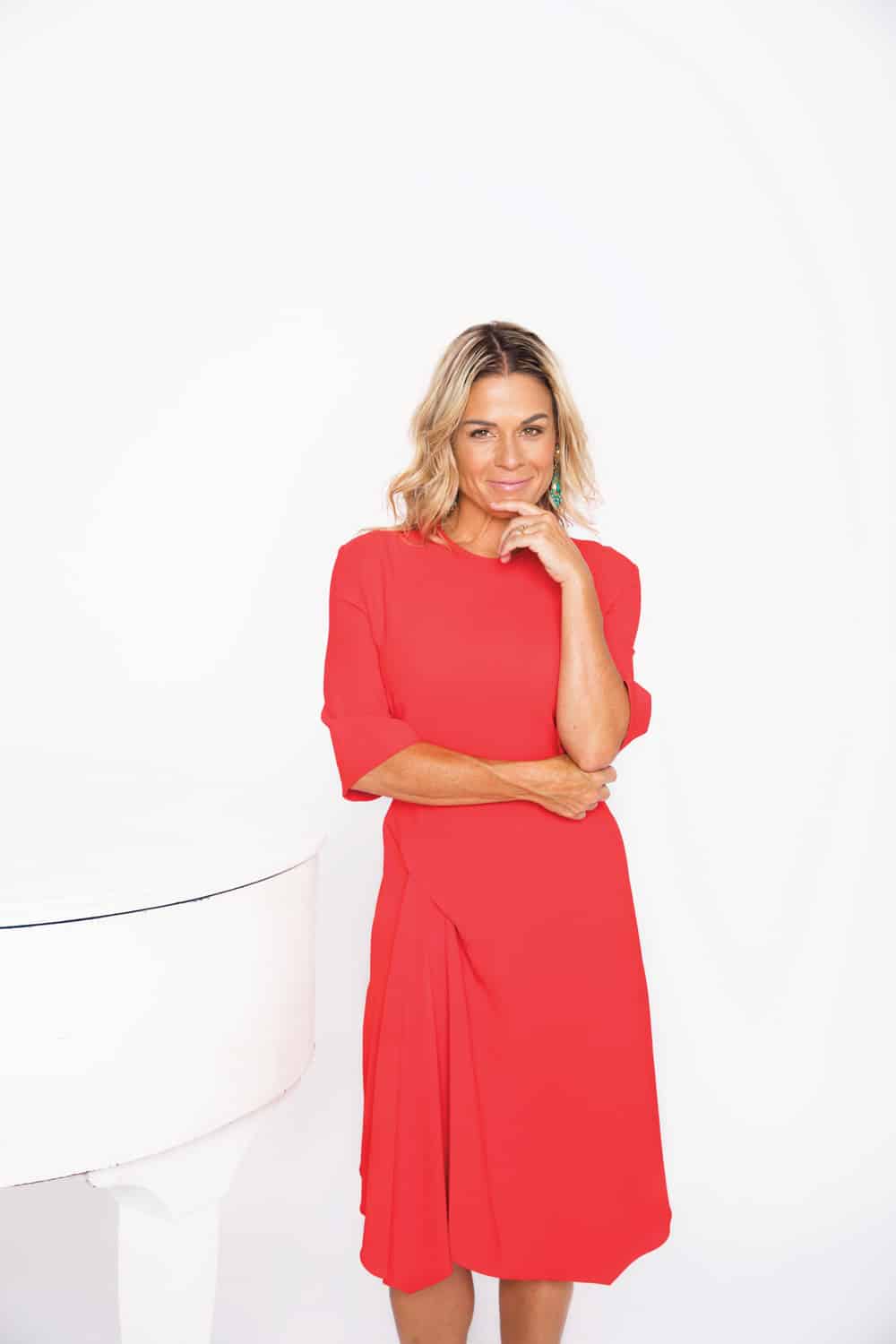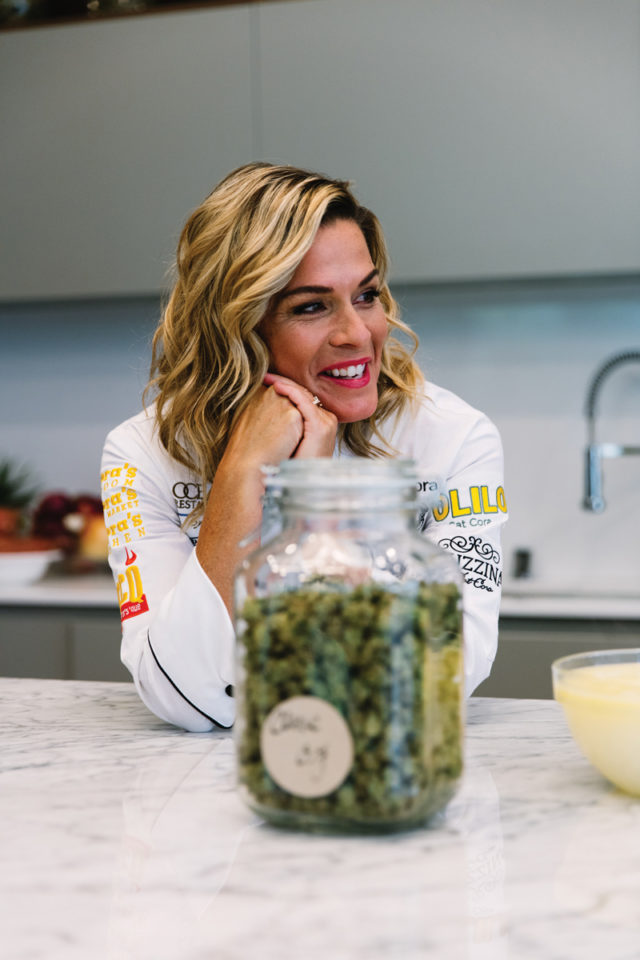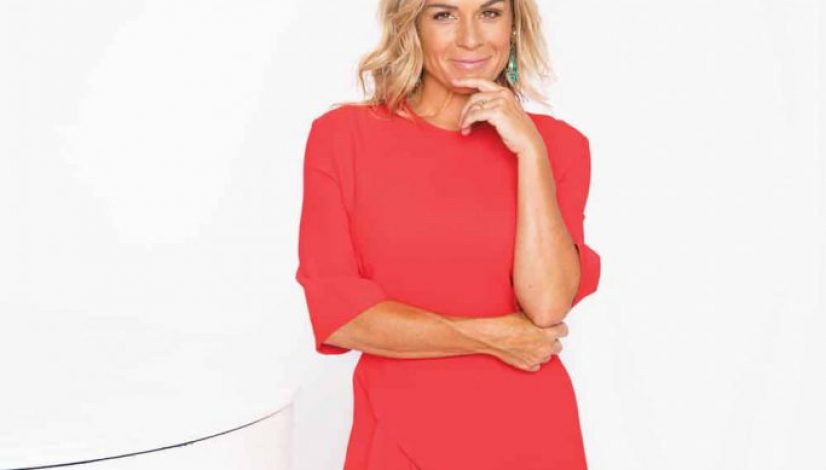The High Times Interview: Cat Cora
The post The High Times Interview: Cat Cora appeared first on High Times.
Cat Cora got her start on The Food Network in the late 1990s and soon became integral to the cooking show trend that would dominate the next decade. In 2005, she made history as the first female Iron Chef. Since then, the world-renowned celebrity chef has opened restaurants around the globe, released popular cookbooks and a memoir, and appeared on dozens of shows teaching people how to cook and lead healthier lives. Cat’s latest endeavor—advocating for medical cannabis patients—might just be the most important of her career.
How did you get your start in the entertainment aspect of cooking?
Well, I was a partner in a restaurant in the Bay Area called Postino. It was a great success. I got a call to come do a local cooking show in San Francisco, and I’d never really done any television. Once I did it, I absolutely fell in love with it. I fell in love with being on television. This was the mid-’90s, so the celebrity-chef phenomenon wasn’t quite there yet. The Food Network was just starting out, and this whole idea of cooking shows was still pretty new. I got the tape of that little local cooking show and I sent it in to Food Network, and they called me, like probably a couple weeks later, and wanted me to come in and do a guest appearance on a show. Then they called me back to do a couple more shows and it all happened super-fast. So the planets were all aligned and I was ready to go because I’d found this new medium that really excited me and I had some aptitude for. So I jumped on it. In 1999, I got my first show with Food Network called Melting Pot, with Rocco DiSpirito. That’s really how it started.
You were the first female Iron Chef. What challenges do you face in a male-dominated field?

When I went to culinary school, it was pretty bad still. It was pretty rough. I had instructors tell me I should go back to Mississippi and be barefoot and pregnant and stay in the kitchen at home, you know?
So it’s [better] these days, but it’s still not completely equal, like many industries, for men and women. For me, the challenge was really to just go in and be fierce, you know? You have to. When I came into this industry, it was still the wild, wild West. You had chefs turning grills over that were lit, with food on it and with fire in it. They’d turn the whole thing over because they were pissed about something, or people threw pots and pans because you did something they didn’t like. It’s just a lot of sexual harassment, innuendos, things like that. It was a really rough time for women when I started in the industry.
The challenge is really being able to go in there and slay, put your head down, cook hard and let that speak for itself. Sometimes it did. Sometimes it didn’t, and you’d have to leave. You’ve got to go somewhere more open-minded, and that’s what I did. I got a lot of offers early on because I graduated top of my class at culinary school, went to France and cooked for two three-star Michelin chefs when women were not welcome in kitchens in France. I got really lucky that there were two three-star Michelin chefs that were open-minded enough to let me cook there. Back then, it literally was very few kitchens that would take females. And they would tell you straight to your face, “We don’t take females here. You’re not allowed in our kitchen.”
When I moved to California and went out and embarked on my own, the challenges are that at that time when [restaurant owners] offered me $7 an hour, they were probably paying the guys $9 an hour or $10 an hour. So it’s pay equality in kitchens. It’s promotions, equal promotions for equal work. Equal pay for equal work. The same arguments we hear every day in almost every industry. It’s the same struggle.
It’s something the cannabis industry is struggling with too.
Right, exactly.
You place a heavy emphasis on healthy lifestyles. How does cannabis fit in with health and wellness in your mind?
Well, look, I saw my dad wither away to nothing. He was a big Greek guy, a giant teddy bear, and he withered away to skin and bones. It broke my heart. I see my mom struggling with her ovarian cancer, going through chemo for five years, and finally stopping chemo because it was counterproductive. So, for me, [cannabis] should be legal everywhere. The way that I see it, it should have a place in everybody’s life that wants alternative medicine for pain, for trauma, for PTSD, if you have cancer and you have no appetite. You need to eat to feed your body, to feed your soul, so that you can live longer, fight the cancer better.
It’s really part of health and wellness. I think that being strong in your mind, body and soul is so important to health and wellness. There is a place for plant medicine and cannabis in our world. You shouldn’t have to live with pain. You shouldn’t have to live with not being able to enjoy a simple meal. You shouldn’t have to live with trauma and night terrors and nightmares and everything that people with PTSD struggle with daily. So, for me, that’s part of being healthy. That’s part of overall wellness, and those things are helped by cannabis. In my mind, that’s where it plays a giant role.
Have you seen cannabis help someone who’s suffered through an illness?
Yeah, I’ve seen people who have definitely benefited. Melissa Etheridge, who is a dear friend of mine, she had breast cancer. The way that she got through breast cancer and chemo was through using cannabis. She’s been cancer-free for over a decade now and, yeah, I’ve had powerful experiences seeing it absolutely work for people.
What do you think of the current legalization trend in the country?
I think for me, my biggest call to action, is really based in the medical field, because I believe that it lends credibility. I think if we can legalize [cannabis] medically for everybody, we can legalize it in general—then I truly believe that it gives it a ton of credibility. You have doctors backing it who are world-renowned doctors who deal with all kinds of medical issues who are backing the legalization of cannabis, and many, many other people that are very influential. So I think if every state would legalize for medical use, the other will follow. [Recreational] pot will follow, because people will see that there is a use for it, it does have credibility—and look, if somebody wants to partake recreationally in a safe and responsible way, like people do with alcohol, so be their choice.

We’ve made incredible strides in the last few years, but many people are still waiting for legal access to marijuana…
My mother’s a perfect example of this. She has ovarian cancer and she’s like, “Look, when it becomes legal in Mississippi, yeah, I’ll try it. But until it’s legal, I don’t want to,” you know what I mean? Even if I had a medical card, even if she comes and visits. It’s important for people, especially the older generations, to purchase something for their health that’s legal. Because to them, that makes it credible.
So, for me, it’s really about going out and spreading the word that this should be legal. You need people in this industry who are extremely credible in areas that are useful to people. So someone like myself, I’ve been doing this for 25 years. I believe I bring a lot of credibility to the table. People cooking my recipes, buying my cookbooks, buying products, things like that… Super-important. Whether it’s me as a chef, whether it’s a doctor, a renowned doctor coming forward and saying, “Absolutely I believe 100 percent in medical marijuana and using cannabis for medical purposes,” and so on. The credibility has to be there, and the doors will open for everything else. If not, Middle America will not buy into it, and it will stay in the black market.
Are you concerned at all with the Trump administration affecting the state-level cannabis laws that are currently in place?
I’m scared of that administration for every reason [laughs]. I think that… You know what? I’m really on the fence. I don’t know. It’s a really tough one. It’s hard to understand where this administration is. I mean, Obama came out and said absolutely, medical marijuana should be legalized. You knew exactly where he stood on this. You have no idea where Donald Trump’s going to stand on Monday compared to where he’s going to stand on Friday.
So it’s a tough question. It’s going to be interesting to see what the administration does. I can tell you he’s going to have a lot of pressure from the pharmaceutical companies because, obviously, if medical marijuana becomes legal, they’re going to take a hit. So it’s going to be really interesting.
You worked a bit with the previous administration, right?
We did a lot for Michelle Obama. When the Obama administration was in the White House, Chefs for Humanity helped launch two of her big initiatives, the Let’s Move campaign for kids to get up and be active and families to be active, and also the Chefs Move to Schools [campaign], which was about helping create better meals and healthier meals for kids in public schools.
Tell us about Chefs for Humanity.
I founded Chefs for Humanity back when a tsunami hit Asia, so it’s about 12 years ago. I did that because there really was no organization that provided emergency-feeding relief. No culinary organization, I should say. There are many incredible organizations that we partner with, but there was no culinary entity that addressed emergency-feeding relief during a crisis. That was something really important to me.
You find in a crisis there’s one of two things that happen. You either have no food or you have a ton of food. In Hurricane Katrina, there were a lot of casinos that got blown away, a lot of restaurants that shut down. There was so much food that was going to go bad, so we put it in refrigerator trucks. We had so much food, and for people who aren’t used to dealing with tons of food and inventory, you have a chance of food-borne illness breaking out. Then everybody gets sick and it’s a disaster. It’s two disasters in one. So it’s important to have culinary professionals handling the food.
When I flew to Haiti and helped after the earthquake hit, there was zero food. We had kids who were eating mud cakes and dry mud because there was no food. So you have the other side of the pendulum you have to deal with. You have to ration beans and rice out, things like that. So I felt it was important to have a culinary organization that was responding in emergency-feeding relief.
You’ve opened restaurants all around the world. Any plans for a Cat Cora cannabis-themed place on the horizon?
Anything’s possible! I think that could be really cool.
Do you have a dish that you think works particularly well with marijuana?
I have so many different recipes that I know for a fact would work really well with cannabis. Cannabis is a plant, you know, so really I look at it as another herb. There’s so many different parts of the plant that you can use for different things. So I think that it works in both savory and sweet dishes because it’s like you’re putting another herb in. That’s how I look at cooking with cannabis—it’s another herb that’s amazing and adds such incredible flavor and aroma to sweet and savory dishes.
With all the medical and recreational laws that have been enacted and the regulations that have followed, we’ve seen the edibles market make huge strides in both the quality of cannabis food and also the packaging and labeling. What do you think about the current edibles market?
I definitely think it’s so much better. A lot of [packaging], years back, would be handmade, and I think it’s been taken to another level that’s safer for sure, and definitely more professional, commercial. That’s always a good thing, a good sign.
You’re an internationally recognized brand with mainstream partnerships. Did you have any concerns about coming out in favor of medical marijuana?
I didn’t. You always have to check in with anything that you’re doing that’s cutting-edge, right? You have to check in and make sure that you can fully embrace it, that you’re looking at all the pros and cons. That’s just a sign of a good businessperson in general. I think we did that. Nicole [Ehrlich] and I, being business partners, and life partners, we talked it over many, many times, and for us, it’s really about the medical space first and foremost, because we have such incredible stories of our families and friends who’ve gone through cancer or gone through illnesses or been in so much pain and struggle that I think it was a no-brainer for us to say, “Okay, this could be tricky for some of our partners and a little too edgy, but we’re going to take a chance because we think that it’s also something that can help save lives and help create a lot of comfort for people who are in a lot of pain.” It’s just really, really something that we believe in.
The post The High Times Interview: Cat Cora appeared first on High Times.


